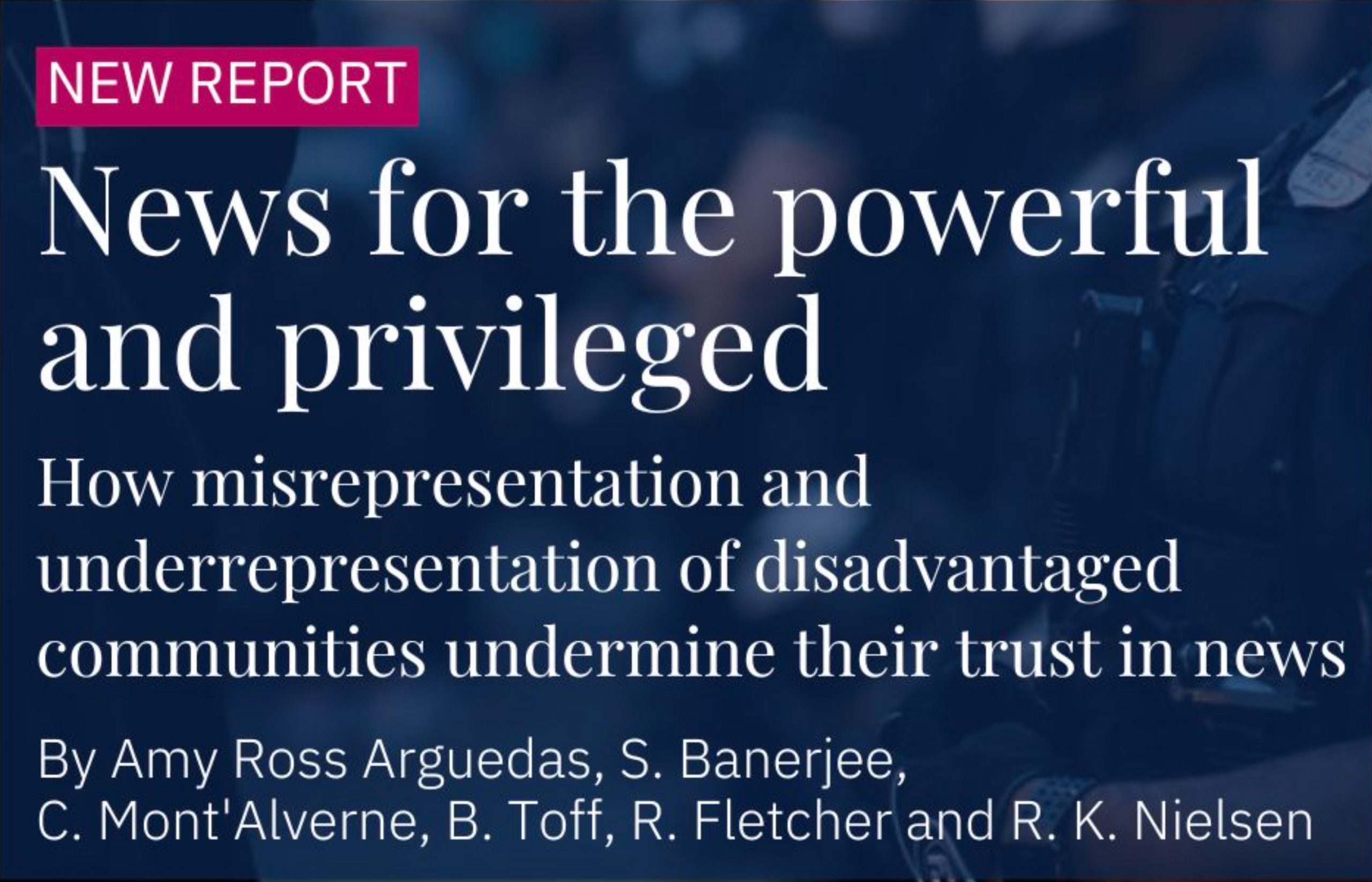New Reuters Institute Report on distrust in the news by disadvantaged communities

Why do disadvantaged communities distrust the news? And what can newsrooms do about it? These are the questions at the heart of a new report by the Reuters Institute Trust in News Project.
The report uses data from 41 focus groups convened in the four countries at the centre of this project – Brazil, India, the UK, and the US – strategically selecting participants from disadvantaged communities whose perspectives and experiences may plausibly differ from majority or dominant groups in important ways.
Key takeaways (also in this Twitter thread):
- Audiences are frustrated over media coverage
Participants expressed similar frustrations about not being represented in the news, with common critiques of coverage ranging from relentless negativity and unfair treatment to harmful stereotyping and inadequate attention - The media is often perceived as an instrument of power
The news media as an institution was often viewed by focus groups participants as an extension of systems aligned to serve those in power rather than the entire public #BLM - Not everyone wants newsrooms to be more diverse
Focus group participants differed on the degree to which they valued the importance of journalists themselves coming from diverse backgrounds, with some seeing it as critically important, and others warier of performative efforts - Audiences value alternative news sources
Many spoke of the importance of niche news sources that they felt more fairly and fully represented people like themselves and their interests, such as local news, individual influencers or podcasters, and ethnic and community media
The report suggests four possible strategies to build trust amongst these audiences:
– focusing on reducing biases
– writing more complete stories
– improving training
– making an effort to understand different needs



